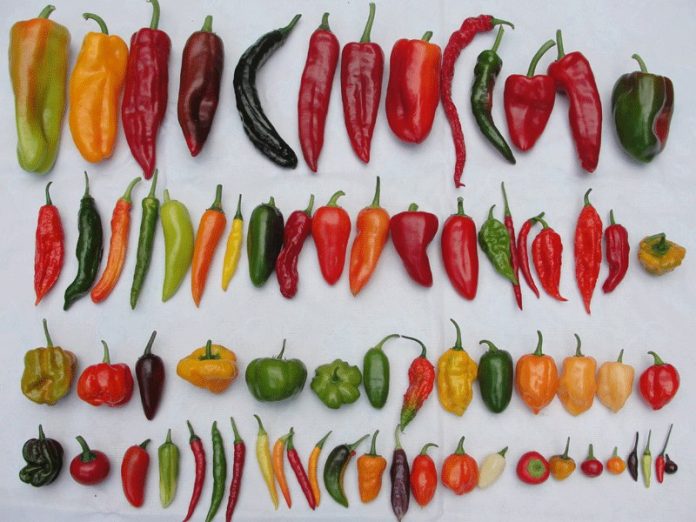National Horticultural Research Institute (NIHORT) says it will soon register and release new pepper varieties to farmers in Nigeria in order to address the scarcity of the commodities.
NIHORT’s Assistant Director of Research and Pepper Breeding, Dr. Christian Anyaoha, disclosed this while showcasing new varieties of pepper to farmers on Tuesday at a two-day workshop on quality pepper seed production in Ibadan.
The News Agency of Nigeria (NAN) reports that the workshop, which started on Monday, was organised by NIHORT, in collaboration with the Taiwan-based World Vegetable Centre.
NAN also reports that the participants were selected from the six geo-political zones of the country.
Anyaoha said that about 17 new pepper varieties on the field showed to farmers comprised of Chilli and Habanero types that were developed by NIHORT and World Vegetable Centre.
He said that the participants were taken to the field for them to be able to identify and make their choices on the new varieties.
“The choices of the farmers will guide us toward the varieties that will be registered and released for farmers in Nigeria to adopt for their pepper production.
“Not only will the farmers gain, it will also guide researchers in the institute on their future breeding activities, the needs and preferred varieties of farmers and consumers,” he said.
According to Anyaoha, some of the new pepper varieties are already on some farmers’ field for on-field trial.
“The Nigeria varietal release comes twice in a year and we are hoping that by December 2024 or January 2025, two or three of the new pepper varieties will be fully registered and released to the farmers in Nigeria,” he said.
One of the participants, Mr. Oluborode Bolakale, said he was happy to see a new variety of long chilli pepper, adding that Nigeria was gradually improving and would soon ‘get there’.
Bolakale said that most pepper seeds in Nigeria were imported into the country but with the discovery, the country would no longer have to import again, while farmers would make more income.
Another participant, Mrs. Rofiat Omotosho, urged the institute to continue to make research in order to discover more varieties of vegetables that would be of high yield to farmers
Omotosho said that the varieties of pepper they had seen on the field were high-yielding despite the change in climate, urging the institute to quickly release it to farmers in the country. (NAN)


